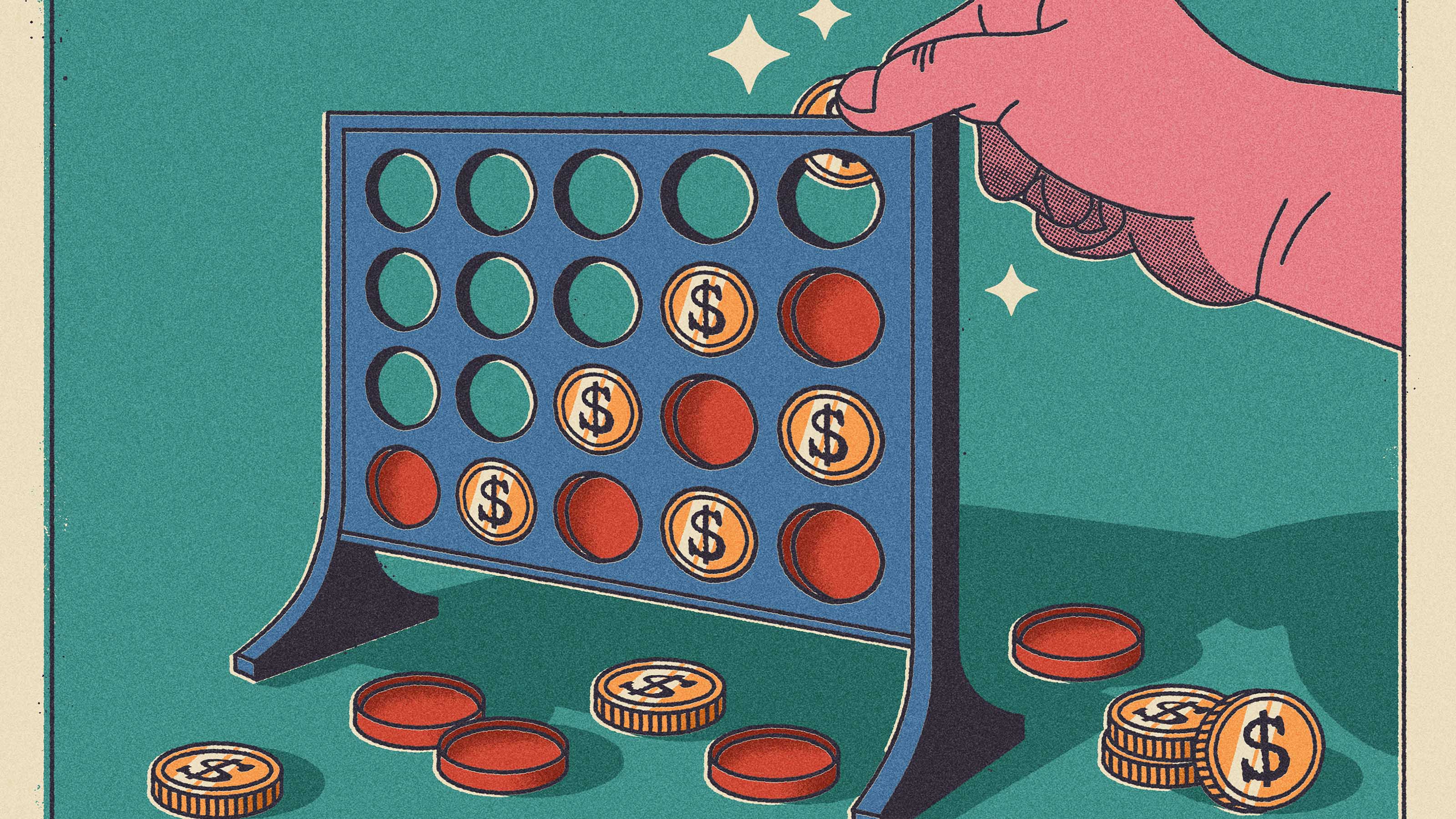My Portfolio's Uninvited Guests
A well-considered spin-off can increase the value of both parent and child by allowing each to focus on a narrower set of goals.


Profit and prosper with the best of Kiplinger's advice on investing, taxes, retirement, personal finance and much more. Delivered daily. Enter your email in the box and click Sign Me Up.
You are now subscribed
Your newsletter sign-up was successful
Want to add more newsletters?

Delivered daily
Kiplinger Today
Profit and prosper with the best of Kiplinger's advice on investing, taxes, retirement, personal finance and much more delivered daily. Smart money moves start here.

Sent five days a week
Kiplinger A Step Ahead
Get practical help to make better financial decisions in your everyday life, from spending to savings on top deals.

Delivered daily
Kiplinger Closing Bell
Get today's biggest financial and investing headlines delivered to your inbox every day the U.S. stock market is open.

Sent twice a week
Kiplinger Adviser Intel
Financial pros across the country share best practices and fresh tactics to preserve and grow your wealth.

Delivered weekly
Kiplinger Tax Tips
Trim your federal and state tax bills with practical tax-planning and tax-cutting strategies.

Sent twice a week
Kiplinger Retirement Tips
Your twice-a-week guide to planning and enjoying a financially secure and richly rewarding retirement

Sent bimonthly.
Kiplinger Adviser Angle
Insights for advisers, wealth managers and other financial professionals.

Sent twice a week
Kiplinger Investing Weekly
Your twice-a-week roundup of promising stocks, funds, companies and industries you should consider, ones you should avoid, and why.

Sent weekly for six weeks
Kiplinger Invest for Retirement
Your step-by-step six-part series on how to invest for retirement, from devising a successful strategy to exactly which investments to choose.
I never actually bought shares of Colony Starwood Homes (symbol SFR) and Knowles Corp. (KN), two stocks in the Practical Investing portfolio. That’s because they are spin-offs. Dover Corp. (DOV), which I no longer own, jettisoned Knowles in early 2014. Weeks earlier, Starwood Property Trust (STWD), which I still hold, unloaded Starwood Waypoint Residential Trust, which merged with Colony American Homes in early 2016 to create Colony Starwood.
Spin-offs are not free money. The assets, debts and even the staff of a spun-off firm are derived from its parent company. And the value of the spinner is diminished by the assets it spun off. However, a well-considered spin-off can increase the value of both parent and child by allowing each to focus on a narrower set of goals. “Some companies are undermanaged when they are under the umbrella of a big company,” says Joe Cornell, head of Spin-Off Research, in Chicago. “There is a different dynamic when you break off; it revs up the entrepreneurial zeal.”
Because Knowles and Colony combined account for less than 2% of my portfolio, I never researched them as thoroughly as I would a stock I was thinking of buying. Most of my other holdings are far larger and thus demanded more attention.
From just $107.88 $24.99 for Kiplinger Personal Finance
Become a smarter, better informed investor. Subscribe from just $107.88 $24.99, plus get up to 4 Special Issues

Sign up for Kiplinger’s Free Newsletters
Profit and prosper with the best of expert advice on investing, taxes, retirement, personal finance and more - straight to your e-mail.
Profit and prosper with the best of expert advice - straight to your e-mail.
But after long neglecting my spin-offs, I decided it was high time to take a closer look. Knowles is, by far, the smallest position in the portfolio. At a bit less than $15 per share, my 83 shares are worth $1,240. However, the company is involved in a business that seems to have exciting growth potential. In addition to making hearing aids, Knowles supplies the microphones and audio equipment for cell phones and the growing number of other internet-connected devices that respond to voice commands.
But Knowles’s fortunes are closely tied to orders from its two biggest customers—Apple (AAPL) and Samsung. As a result, Knowles’s results have been spotty. For example, although the company reported operating income of 37 cents per share in the third quarter of 2016, the bottom line showed a loss of 8 cents a share because of several onetime costs.
Knowles’s CEO recently told analysts that the company is making inroads with Chinese makers of wireless phones and that he sees rising demand for better audio products because of the growth of the “internet of things”—devices that can be controlled remotely via the web. These developments should benefit Knowles over the long haul and may make earnings a bit more predictable in coming years. For now, I’m content to keep this little gamble in the portfolio but not to expand my position.
Focusing on homes. Starwood Property Trust, the nation’s largest real estate investment trust specializing in commercial mortgages, spun off what’s now Colony Starwood as a way to dispose of a smaller business that owned single-family homes and delinquent residential loans. Opportunities to cash in on troubled mortgages were plentiful during and after the financial crisis. But much of the easy money has been made, and Colony in August sold a portfolio of 1,675 loans, substantially completing its exit from the business. It used the proceeds to pay down debt and buy more homes to renovate and rent.
At $29, Colony trades at 18 times estimated 2016 funds from operations, the REIT sector’s preferred measure of profits (FFO essentially adds back depreciation to earnings). That’s in line with the average property-owning REIT, though most REITs look expensive in comparison with their historical valuations. But analysts expect Colony’s FFO to climb by 17% in 2017, and the stock yields a decent 3.0%. In sum, I think the stock is too pricey to add to my modest 115-share position (worth $3,336), but the dividend and the prospect of better growth in 2017 are sufficient reasons to justify hanging on.
Profit and prosper with the best of Kiplinger's advice on investing, taxes, retirement, personal finance and much more. Delivered daily. Enter your email in the box and click Sign Me Up.

-
 5 Vince Lombardi Quotes Retirees Should Live By
5 Vince Lombardi Quotes Retirees Should Live ByThe iconic football coach's philosophy can help retirees win at the game of life.
-
 The $200,000 Olympic 'Pension' is a Retirement Game-Changer for Team USA
The $200,000 Olympic 'Pension' is a Retirement Game-Changer for Team USAThe donation by financier Ross Stevens is meant to be a "retirement program" for Team USA Olympic and Paralympic athletes.
-
 10 Cheapest Places to Live in Colorado
10 Cheapest Places to Live in ColoradoProperty Tax Looking for a cozy cabin near the slopes? These Colorado counties combine reasonable house prices with the state's lowest property tax bills.
-
 The Most Tax-Friendly States for Investing in 2025 (Hint: There Are Two)
The Most Tax-Friendly States for Investing in 2025 (Hint: There Are Two)State Taxes Living in one of these places could lower your 2025 investment taxes — especially if you invest in real estate.
-
 The Final Countdown for Retirees with Investment Income
The Final Countdown for Retirees with Investment IncomeRetirement Tax Don’t assume Social Security withholding is enough. Some retirement income may require a quarterly estimated tax payment by the September 15 deadline.
-
 How to Beef Up Your Portfolio Against Inflation
How to Beef Up Your Portfolio Against Inflationinvesting These sectors are better positioned to benefit from rising prices.
-
 Taxable or Tax-Deferred Account: How to Pick
Taxable or Tax-Deferred Account: How to PickInvesting for Income Use our guide to decide which assets belong in a taxable account and which go into a tax-advantaged account.
-
 Smart Investing in a Bear Market
Smart Investing in a Bear Marketinvesting Here's how to make the most of today’s dicey market.
-
 How to Open a Stock Market Account
How to Open a Stock Market Accountinvesting Investing can be fun, but you need a brokerage account to do it. Fortunately, it’s easy to get started.
-
 The Right Dividend Stock Fund for You
The Right Dividend Stock Fund for YouBecoming an Investor Dividend stock strategies come in many different flavors. Here's what to look for.
-
 Alternative Investments for the Rest of Us
Alternative Investments for the Rest of UsFinancial Planning These portfolio diversifiers aren't just for the wealthy.